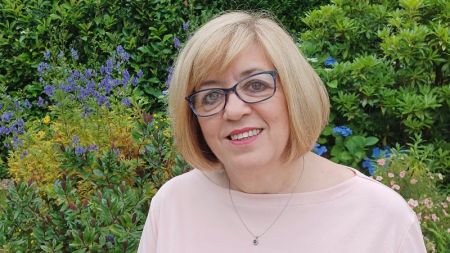Working in Land and Estates: At our heart, we are our properties.

With thousands of buildings and many hundreds of hectares of land, we are one of the biggest land and estate owners in the world and one of the biggest conservation charities in northern Europe. It takes a huge team of people to look after the land, buildings, and estates we manage. We sat down with Giles Hunt, Land and Estates Director, to find out about his role and how his experience and love for the Trust impacts his work.
What led you into the role you’re in today?
When you leave university, you have to do two years of practical work as a Rural Surveyor before being able to take your final exams and become fully qualified. The National Trust was offering a training contract, so I took the opportunity to get qualified. As you work with the Trust, you learn more about what we’re doing and what we stand for. The variety of work in the Trust is probably the greatest you’ll get in the country for a Rural Surveyor.
I’ve worked in the Trust for 22 years. I started as an Assistant Surveyor in the East of England region, at Blickling Hall. I then moved to the East Midlands region as a Rural Surveyor, and after that I moved to the Wessex region to become Regional Rural Surveyor and Head of Land Use. When Wessex, Devon, and Cornwall merged to become the South West region, I became Assistant Director of Consultancy for the South West. Then I was appointed Head of Rural Surveying.
Quite a lot of change over the last 22 years but I love the Trust, it’s brilliant!
Now, I lead our Land and Estates team which is divided into four regional areas supported by a rural asset team and building professionals. Within the directorate, we support estate management across our places and we’re accountable for over 8,000 residential and commercial agreements.
What’s challenging about your current role?
We have 28,000 buildings and structures. We need to make sure our buildings policies are what they need to be and to ensure both annual maintenance and longer-term maintenance is done in the best possible way. It’s about using our resources in the most efficient way we can.
In my current role, I get involved in all sorts. We’ve got a lot of strategic aims, like the renovation of our many let houses. We’re undergoing a big let property renovation project and have been for a few years now. We’re looking at how we’re managing our farmland, inalienability, long leases, estate management plans, and how we help and support in the regions.
What do you really enjoy about your role?
I think my inspiration is the fact that the Trust was set up all those years ago in 1895, for the protection and preservation of really wonderful places for ever.
My role in Land and Estates is to ensure that we deliver on that protection, be that protection of land or ensuring our buildings are in great shape, so that future generations can enjoy them in the same way that we’re enjoying them now.
That’s what I really like – dealing with the challenges of difficult cases where there isn’t an easy solution – but we have to find an answer. I love it, different challenges every day!
More than 95% of our buildings are declared inalienable, which means we can never sell them, so we have to maintain them. Regardless of what’s going on, we must ensure our buildings are in really great shape. In more than 5,000 or so, we have people living in the buildings, so we need to make sure that those homes are in good condition.
Our strategic objective of looking after what we’ve got is really at the heart of what we’re here to do in Land and Estates.
Any advice for someone looking for a career in Estate Management?
My advice is to get out into the regions, get out to the properties and really immerse yourself in what we're doing on the ground. It’s there that you realise what the Trust is all about.
At our heart, we are our properties. Understanding how they operate and the challenges they face is really important. What might seem obvious on paper is not obvious on the ground, and really getting an understanding of that is important if you are going to be successful in your role.
Categories
- Apprenticeships (52)
- Building Surveying (3)
- Business Services (1)
- Catering (1)
- Communications and Marketing (3)
- Conservation (9)
- Countryside (10)
- Curatorship (3)
- Diversity (1)
- Estate Management (4)
- Finance (2)
- Food and Beverage (6)
- Fundraising (8)
- Gardening (11)
- General Management (2)
- Governance (2)
- Heritage Building Crafts (4)
- Holidays (3)
- House and Collections (4)
- IT (8)
- Membership (1)
- People and Legal (3)
- Projects and Programmes (6)
- Retail (2)
- This is us (5)
- Visitor Experience (3)
- Volunteer and Community (3)
- Volunteering (1)
- Work Experience (1)
- Young People (12)

